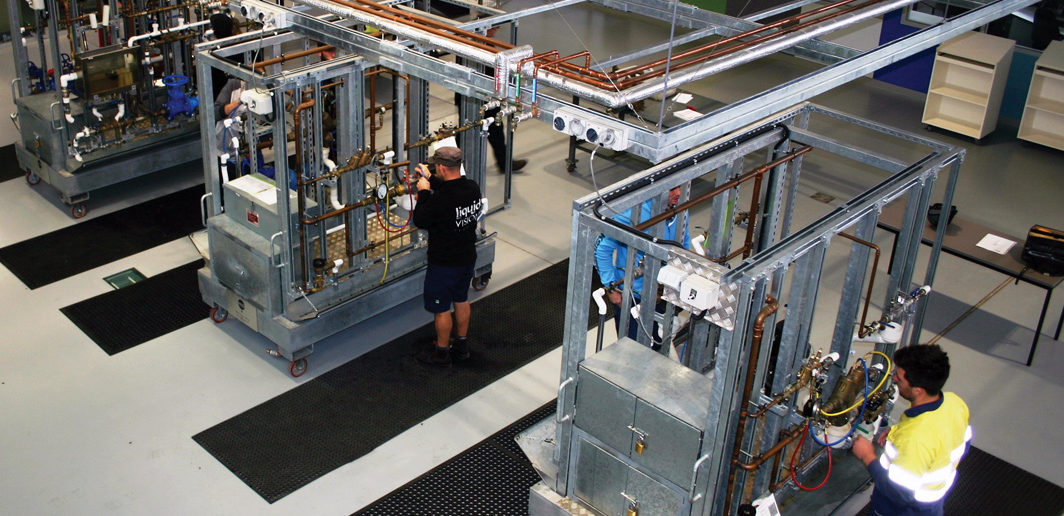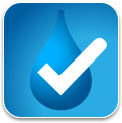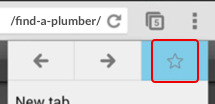Four decades ago, Gary Bath completed his plumbing apprenticeship. While this was his golden ticket, Gary, now Master Plumbers’ Chief Technical Advisor, tells us why he advocates for industry-led, continuing professional development.
I think we would all agree that since completing our formal qualifications, which for the majority of us is our apprenticeship, much has changed in the industry. This year in Victoria, as a result of another tragic death from Carbon Monoxide poisoning, the Victorian Building Authority (VBA) heavily promoted an additional series of information sessions on how to detect negative pressure and CO for gasfitters.
These sessions, delivered by Master Plumbers, managed to attract some 5,000 Licenced and/or Registered gasfitters.
Considering that there are more than 20,000 gasfitters in Victoria and the sessions were held in both regional and metropolitan locations, in the evenings and were free to attend, it is hardly the response you would expect on an issue that directly relates to public health and safety.

What has changed anyway?
Outside specific technical changes such as the release of AS/NZS 3500-2018 standards in July of this year that cover hot and cold water, sanitary drainage and roofing/stormwater installation, there are:
- Local Council and other statutory body requirements relating to changes in the built environment such as bushfire zones, compacted building envelopes, etc.
- Federal and State changes to mployment conditions/apprenticeships
- Workplace Health and Safety requirements
- Changes to taxation requirements, ATO reporting requirements, etc.
How do plumbers keep up to date?
The majority of the information on changes is accessed by plumbers on an as-needs basis - I’ve just employed an apprentice, I need information on salary.
Regulators in the main, do a good job at providing general technical information in the form of technical data sheets or their equivalent. This information is general in nature and tends to cover broad topics that arise from an installation type issue, change to a standard or as a result of non-compliance. However, for some time now regulators, particularly those that operate within a self-certifying regime are less inclined to provide specific installation information particularly in light of the uptake on performance based outcomes that exist within the Plumbing Code of Australia.
Manufacturers information, you know that bit of paper we all look for after initially discarding it when we can’t get the tap set to fit correctly or we realise that the pan will be too close to the wall is another I would suggest fits into the “as needed” information. Gas Appliance Manufacturers are required to supply installation information along with the appliance, but accessing appliance servicing information is often extremely difficult, but a necessary part of carrying out the task.
There’s so much information accessible via the smartphone in the palm of your hand that the concern is the source of the information and whether it can be trusted rather than where do I get it from. Take a quick look through YouTube and you can find many examples of “experts” explaining installation techniques for any number of trade occupations, some of them Licenced.
So, in respect to the above, I would suggest that having access to reliable and reputable sources of information are key, but is it Continuing Professional Development (CPD)?
What is compliance-modelled CPD
While the overwhelming majority of jurisdictional regulators support CPD as a concept, Tasmania is the only regulatory body to mandate it as a requirement for Licencing. They have used a model of achieving a particular number of points over a given time period in order to maintain or be in a position to maintain their Licence. The allocation of points is defined by the regulator in terms of time to complete (eg: one-day course/one hour information session), as well as content. It can also include some online courses that can be completed at a time that suits the Licence holder.
The current requirement of 12 points annually (36 over the three-year Licence period) does not appear overly onerous and the current listed training provides a broad range of specific technical and contractual/compliance type training. It also provides for manufacturers training sessions, which often are a valuable source of information for the industry but are usually targeted to a product or appliance.
It’s fair to say that a CPD model that is driven by the regulator does tend to focus on rectifying compliance type issues, which is great and that’s their role but there are examples where the recommended training/information sessions become “how to complete this particular application”, hardly what you would consider professional development.
What do we need?
I am the owner of a smart phone. It can connect to my emails, take photos, and allow me to access the world wide web to connect to any number of information points. It allows me to turn on my home climate controls and I’ve even made the odd phone call from it! Do I use all of its capacity? No. Importantly, do I understand what else it can do? Not at all. Would I like to know how I can better utilise it? Yes, I would. So, what would that training look like?
For me that might be a very broad explanation of all its capacity. Based on that I could then determine where I focus my attention. Maybe I want to learn how to set appointment alerts. Yep, I do, so how me how. Once completed, I would get confidence through repetition and I’m soon looking at enhancements to that application.
CPD in our industry should be the same. Make it easy to determine what my specific benefits might be and how I get there. Once I have a full appreciation for how that enhances my work, I can then choose to go further or go back to something else. Our training bodies have a major part to play as enablers to provide formal training as required, equally our manufacturers have a vested interest in ensuring that their product is installed and maintained correctly. However, it is our industry associations that can steer this with an eye on innovation and where our industry might be positioned in the future.
A good system of CPD has a limited number of mandated requirements with the ability to undertake a very broad allocation of learning modules that suit individuals’ experience.
(Now, does anyone know how to turn off this calendar alert on my phone?)
Master Plumbers’ message
Master Plumbers has a long history of providing professional development and training to our members. The plumbing profession is constantly changing and it’s become increasingly difficult to keep up as the pace of change has accelerated. We strongly believe that a CPD program which is relevant and useful to plumbers will play an integral role in sustaining a professional and proficient industry. The time is right to introduce formal Continuing Professional Development in Victoria, building on the success of the program in Tasmania. Accordingly, Master Plumbers will shortly launch our new CPD program and will call for volunteers from our members to help us test and refine it. Keep an eye out for more detail through our online newsletter and social channels.
Master Plumbers’ CEO Peter Daly
Share this Article






